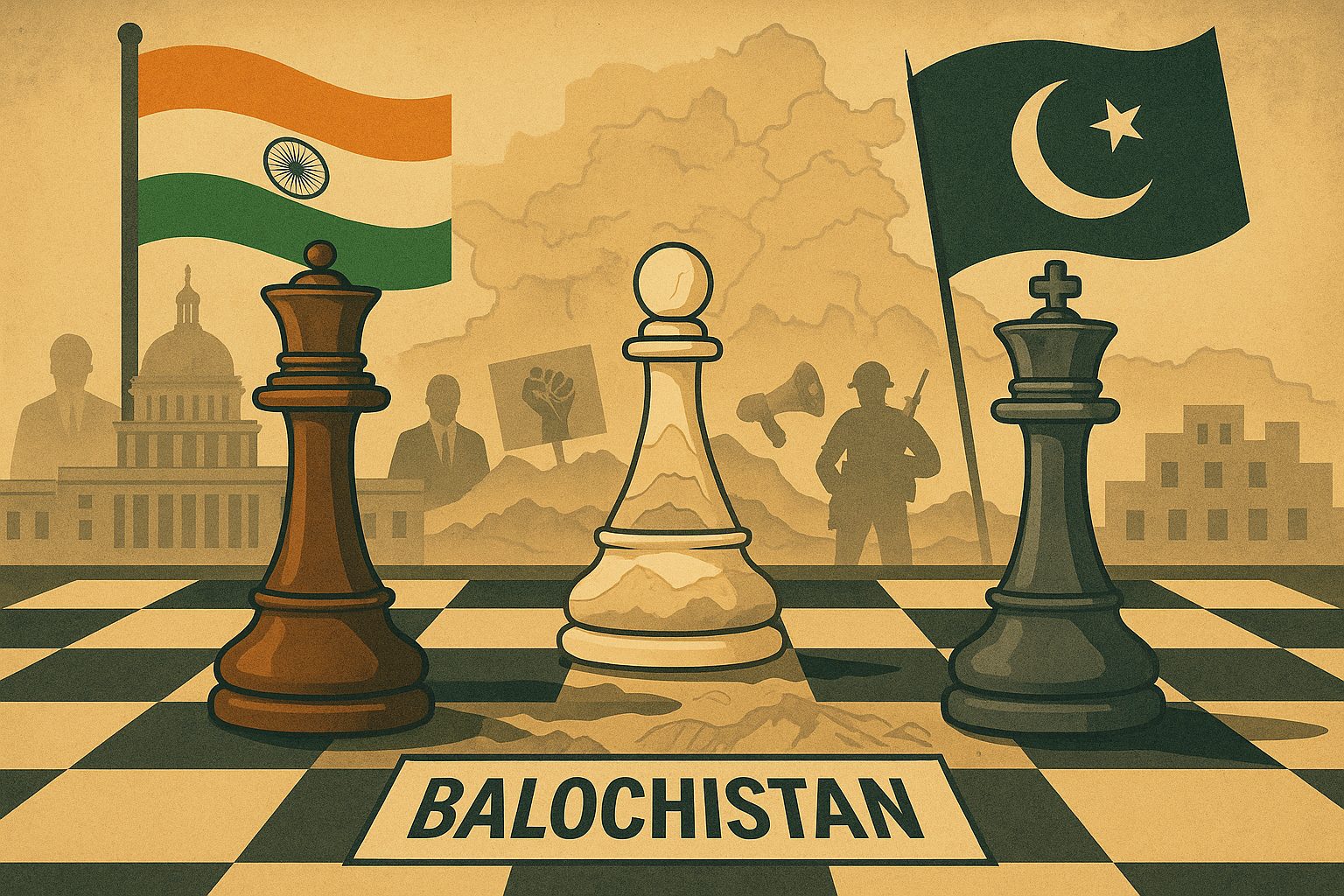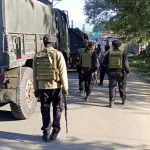Balochistan, a vast and resource-rich province in southwestern Pakistan, borders Iran, Afghanistan, and the Arabian Sea. Despite making up nearly 44% of Pakistan’s land area, it houses only around 6% of the country’s population. The region holds significant geopolitical importance due to its abundant natural resources, strategic location along key trade routes, and the presence of the China-Pakistan Economic Corridor (CPEC), particularly the Gwadar port. Recently, the Balochistan issue has gained renewed attention amidst rising India-Pakistan tensions, military developments such as Operation Sindoor, and escalating international concerns over human rights violations in the province.
Recently, Baloch leader Mir Yar Baloch declared Balochistan’s independence from Pakistan on Wednesday, marking a pivotal moment in the region’s turbulent history. He appealed to the international community — especially India — to recognize Balochistan as a sovereign nation and to support their cause diplomatically and politically.
Background and Conflict
Balochistan’s location makes it central to regional geopolitics. It borders Iran and Afghanistan, has a long Arabian Sea coastline, and lies at the crossroads of South Asia, Central Asia, and the Middle East. The Gwadar port, a flagship CPEC project, provides China and Pakistan with direct access to the Indian Ocean, further amplifying the province’s strategic value.
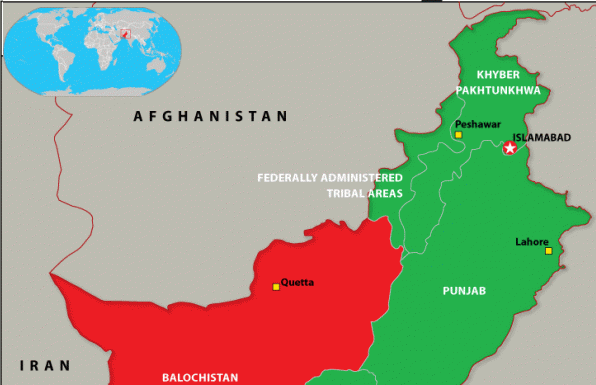
The roots of Balochistan’s conflict date back to 1948 when Pakistan annexed the region, overriding resistance from the local leadership. The Khan of Kalat, Balochistan’s ruler at the time, was reportedly coerced into signing the instrument of accession. This controversial integration sparked widespread resentment and a cycle of insurgencies that continue to this day. Baloch nationalist groups have consistently accused the Pakistani state of systemic marginalization, resource exploitation, and violent repression.
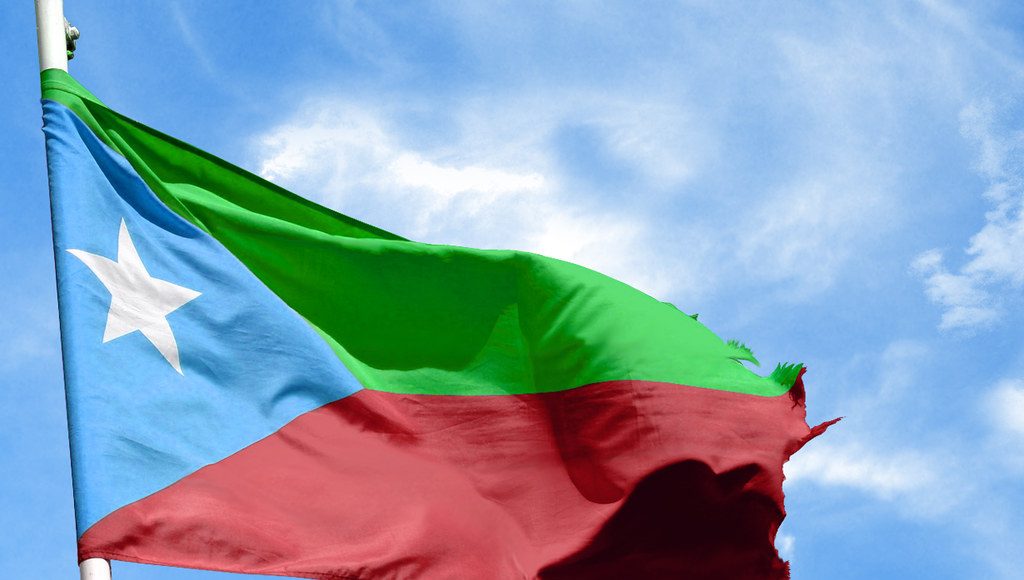
Multiple Baloch nationalist groups, such as the Baloch Liberation Army (BLA) and Baloch Republican Army (BRA), advocate for either greater autonomy or full independence. These groups have targeted Pakistani military installations and Chinese-backed infrastructure projects, citing both political disenfranchisement and economic exploitation as primary grievances.
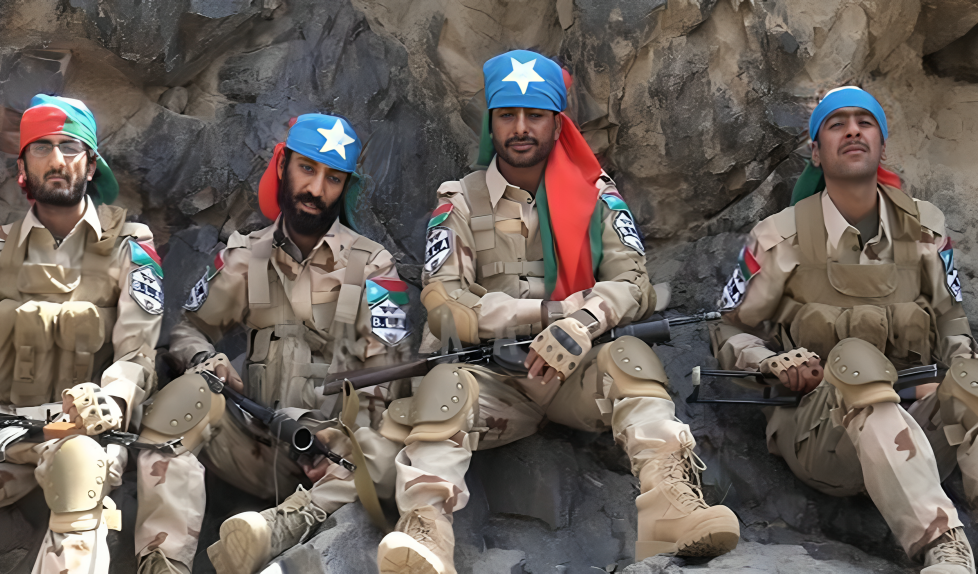
Pakistan has responded with recurring military operations across Balochistan. These operations have led to widespread allegations of human rights abuses, including extrajudicial killings, enforced disappearances, and torture. Rather than quelling dissent, these measures have often intensified the local population’s alienation and strengthened the insurgency.
India’s Present Stance
India has historically maintained a policy of non-intervention and respect for the territorial sovereignty of neighboring states. However, a notable shift occurred in 2016 when Prime Minister Narendra Modi referenced Balochistan during his Independence Day address, signaling an intention to internationalize the issue. Despite this rhetorical support, India has not formally recognized Balochistan’s independence nor provided direct assistance to its separatist movements. Its engagement remains confined to diplomatic expression and limited humanitarian advocacy.
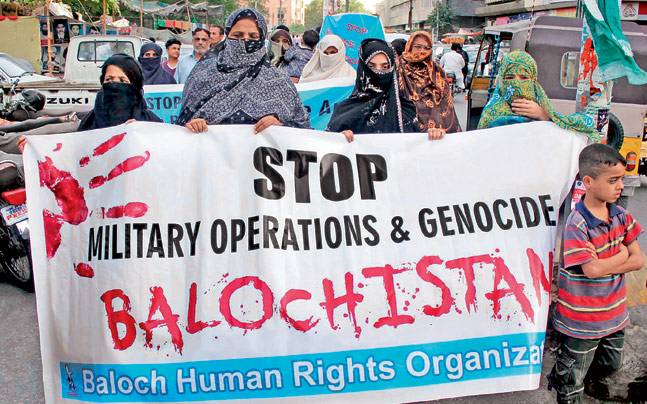
Arguments in Favor of Recognition
- Strategic Counterbalance: Recognizing Balochistan could serve as a counter-strategy to Pakistan’s position on Kashmir and its alleged support for anti-India militancy, thereby offering New Delhi a form of strategic reciprocity.
- Humanitarian Rationale: Continued reports of atrocities and repression in Balochistan strengthen the moral case for India to support the Baloch people’s right to self-determination.
- Regional Stabilization: Advocates suggest that an independent, secular Balochistan could act as a stabilizing buffer in a geopolitically volatile region.
- Democratic Principles: Supporting oppressed communities aligns with India’s democratic ethos and its commitment to human rights.

Arguments Against Recognition
- Violation of International Law: Recognizing Balochistan would contravene the principles of state sovereignty and territorial integrity enshrined in international law, potentially weakening India’s own positions on territorial disputes.
- Diplomatic Fallout: Such a move could strain India’s relationships with global partners who uphold the sanctity of national borders and could tarnish India’s global image.
- Domestic Repercussions: Supporting separatism abroad could embolden internal secessionist movements within India, such as those in Kashmir or the Northeast.
- Risk of Escalation: Open recognition could provoke severe retaliation from Pakistan, heightening the risk of military confrontation.
- Geopolitical Complexity: Iran, which has its own Baloch population, may view the move with suspicion. Similarly, it could antagonize China, given CPEC’s strategic and economic importance to Beijing.
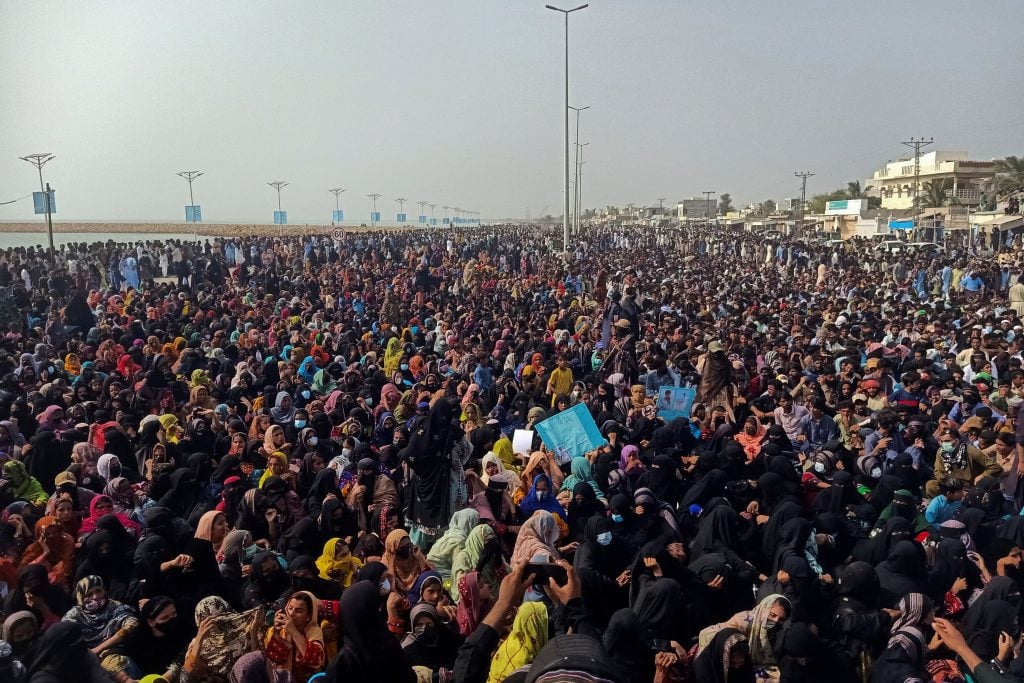
International Perspective
Globally, major powers and institutions—including the UN, US, and EU—recognize Balochistan as part of Pakistan. While human rights concerns are occasionally raised, there is little international appetite for endorsing separatist claims. Historical analogies with regions like Kosovo, Palestine, Taiwan, or Tibet demonstrate that recognition often hinges on political expediency rather than legal consistency. In practice, the principle of territorial integrity generally outweighs calls for secession.
Strategic Alternatives for India
Given the risks of formal recognition, India may consider a calibrated approach:
- Diplomatic Advocacy: Continue raising human rights issues in Balochistan through international platforms to exert pressure on Pakistan.
- Support for Civil Society: Channel assistance to human rights organizations and independent media documenting the situation on the ground.
- Covert Engagement: Explore discreet diplomatic or intelligence-based measures that avoid overt recognition while subtly supporting Baloch voices.
- Diaspora Mobilization: Utilize think tanks, media outlets, and the global Baloch diaspora to internationalize the issue and build global awareness.
Conclusion
The prospect of recognizing Balochistan’s independence poses a complex dilemma for India. While the move may offer strategic leverage and moral justification, it carries significant legal, diplomatic, and security risks. A more pragmatic course would involve raising the issue diplomatically, supporting human rights initiatives, and subtly influencing global opinion without breaching international norms. India’s response must carefully balance its moral imperatives with strategic foresight, upholding its values without compromising regional stability or national interes

